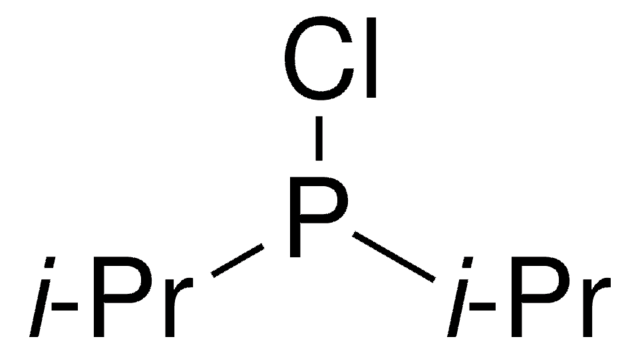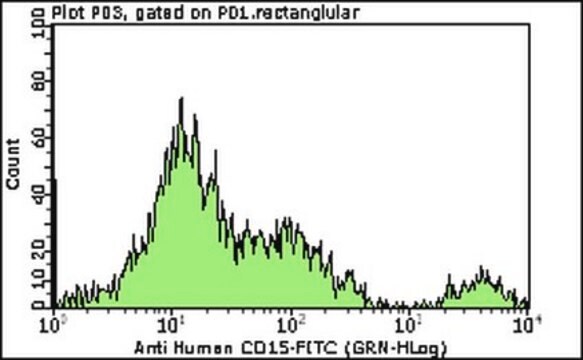C39601
Chlorodiphenylphosphine
96%
Synonym(s):
P-Chlorodiphenylphosphine, ClPPh2, PPh2Cl, Diphenylphosphinous chloride
About This Item
Recommended Products
vapor density
7.8 (vs air)
Quality Level
Assay
96%
form
liquid
reaction suitability
reaction type: Buchwald-Hartwig Cross Coupling Reaction
reaction type: Cross Couplings
reaction type: Heck Reaction
reaction type: Hiyama Coupling
reaction type: Negishi Coupling
reaction type: Sonogashira Coupling
reaction type: Stille Coupling
reaction type: Suzuki-Miyaura Coupling
refractive index
n20/D 1.636 (lit.)
bp
320 °C (lit.)
density
1.194 g/mL at 25 °C
1.229 g/mL at 25 °C (lit.)
functional group
phosphine
SMILES string
ClP(c1ccccc1)c2ccccc2
InChI
1S/C12H10ClP/c13-14(11-7-3-1-4-8-11)12-9-5-2-6-10-12/h1-10H
InChI key
XGRJZXREYAXTGV-UHFFFAOYSA-N
Looking for similar products? Visit Product Comparison Guide
General description
Application
Signal Word
Danger
Hazard Statements
Precautionary Statements
Hazard Classifications
Acute Tox. 4 Oral - Aquatic Chronic 3 - Eye Dam. 1 - Met. Corr. 1 - Skin Corr. 1B
Supplementary Hazards
Storage Class Code
8A - Combustible corrosive hazardous materials
WGK
WGK 1
Flash Point(F)
280.4 °F
Flash Point(C)
138 °C
Personal Protective Equipment
Certificates of Analysis (COA)
Search for Certificates of Analysis (COA) by entering the products Lot/Batch Number. Lot and Batch Numbers can be found on a product’s label following the words ‘Lot’ or ‘Batch’.
Already Own This Product?
Find documentation for the products that you have recently purchased in the Document Library.
Customers Also Viewed
Our team of scientists has experience in all areas of research including Life Science, Material Science, Chemical Synthesis, Chromatography, Analytical and many others.
Contact Technical Service












![(11bR)-2,6-Bis(diphenylphosphino)-N,N-dimethyldinaphtho[2,1-d:1′,2′-f]-1,3,2-dioxaphosphepin-4-amine](/deepweb/assets/sigmaaldrich/product/structures/260/755/3101c3e8-e884-4803-ba52-a87c7e168847/640/3101c3e8-e884-4803-ba52-a87c7e168847.png)
